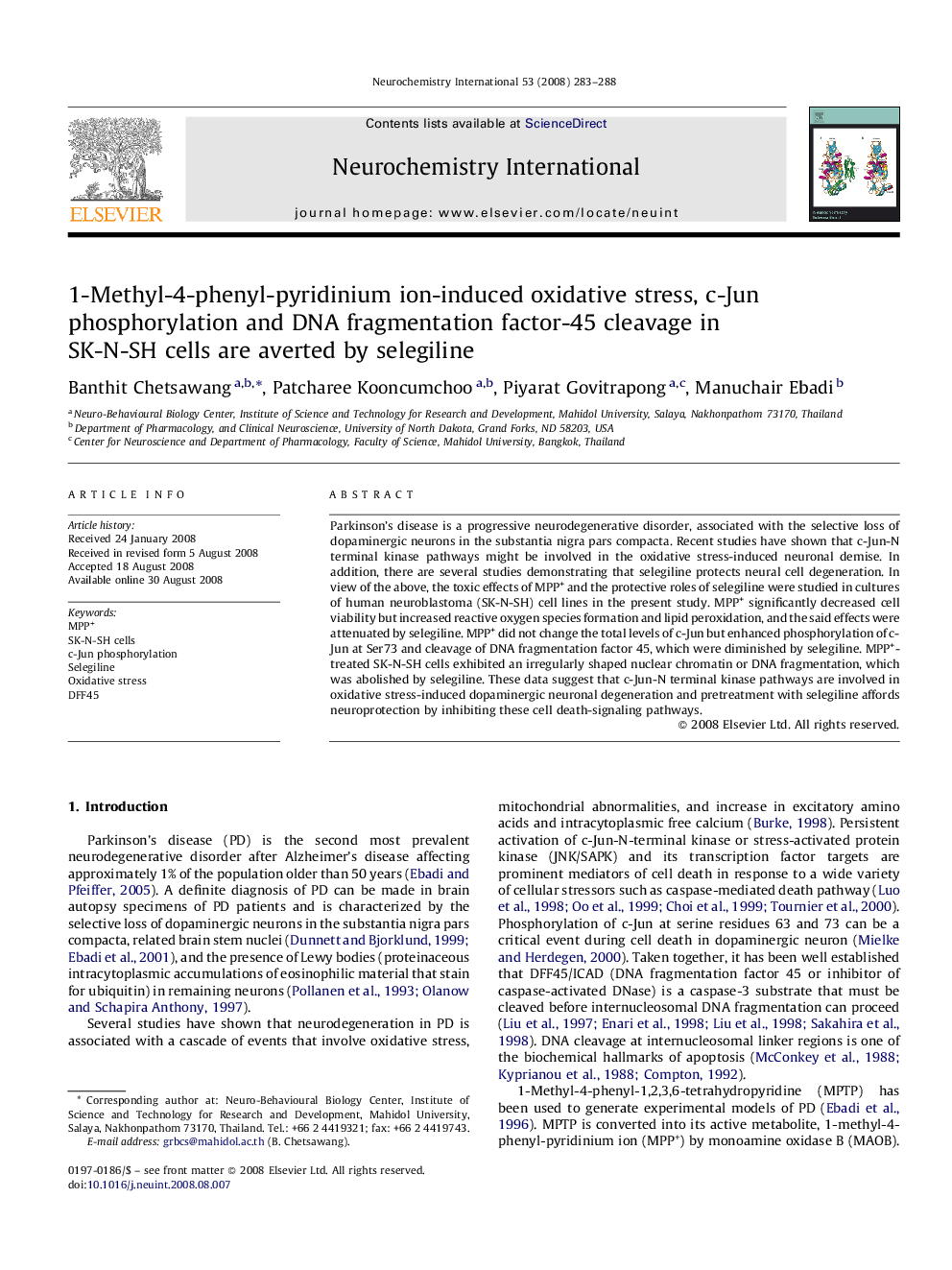| کد مقاله | کد نشریه | سال انتشار | مقاله انگلیسی | نسخه تمام متن |
|---|---|---|---|---|
| 2201035 | 1551315 | 2008 | 6 صفحه PDF | دانلود رایگان |

Parkinson’s disease is a progressive neurodegenerative disorder, associated with the selective loss of dopaminergic neurons in the substantia nigra pars compacta. Recent studies have shown that c-Jun-N terminal kinase pathways might be involved in the oxidative stress-induced neuronal demise. In addition, there are several studies demonstrating that selegiline protects neural cell degeneration. In view of the above, the toxic effects of MPP+ and the protective roles of selegiline were studied in cultures of human neuroblastoma (SK-N-SH) cell lines in the present study. MPP+ significantly decreased cell viability but increased reactive oxygen species formation and lipid peroxidation, and the said effects were attenuated by selegiline. MPP+ did not change the total levels of c-Jun but enhanced phosphorylation of c-Jun at Ser73 and cleavage of DNA fragmentation factor 45, which were diminished by selegiline. MPP+-treated SK-N-SH cells exhibited an irregularly shaped nuclear chromatin or DNA fragmentation, which was abolished by selegiline. These data suggest that c-Jun-N terminal kinase pathways are involved in oxidative stress-induced dopaminergic neuronal degeneration and pretreatment with selegiline affords neuroprotection by inhibiting these cell death-signaling pathways.
Journal: Neurochemistry International - Volume 53, Issues 6–8, December 2008, Pages 283–288